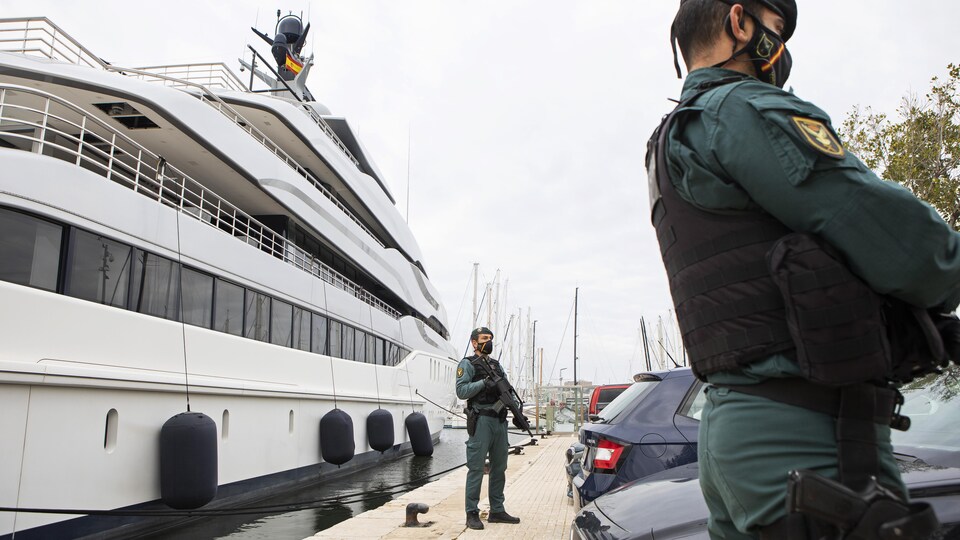72 days after the first wave of economic sanctions, Ottawa still has not announced the total value of Russia’s assets frozen in the country.
In a written response to Radio-Canada, the Royal Canadian Mounted Police said so for now, the RCMP cannot provide details on the total value of fixed assets, but hopes to release figures to the public soon..
These numbers will only be known after the adoption of the budget, the Foreign Minister, Mélanie Joly, adopted on April 27, before a meeting of the Liberal caucus. Ottawa is included in the provisions of the budget plan to seize and sell Russia’s assets, but also to determine their value.
The law will make finding information possible. We will be able to work with banks, work with different sources that may be aware of the assets, the people we are targeting, the oligarchs we are targeting. […] One of the frustrations I experienced was that I couldn’t actually sell these assets, not knowing the value of them.said the minister.
For their part, opposition parties are calling for more transparency.
Irresponsibility, criticizes the opposition
For the Deputy Leader of the Conservative Party, Luc Berthold, knowing the value of frozen assets is necessary to assess the effectiveness of the strategy of economic sanctions adopted by the federal government.
Canadians have a right to know if really, at this time, everything is being done to ensure that the fate of the Russian oligarchs supporting Vladimir Putin’s regime is really frozen, and that there is no access to continue his acquaintance. horrible war against Ukraine.
Same story from Alexandre Boulerice, Quebec lieutenant of the New Democratic Party. There is no transparency and the government cares. He is said to be tough on the oligarchs and the Vladimir Putin regime, but in reality, no one in the government is in charge of freezing the assets of these people here in Canada. So is this a joke? Just wind.
In fact, within the government, there is no central body responsible for listing Russia’s assets and overseeing the freezing of assets. Instead, according to the RCMP, the responsibility is on all Canadians to freeze assets and suspend transactions related to those imposed by economic sanctions.
A structural problem that limits the effectiveness of the sanctions, which in turn criticizes Christine Normandin, deputy leader of the Bloc Québécois. When we answered: “This is the work of all “, ultimately, it is the work owned by no one. This is necessary to ensure that at least that there is a rendering of accounts that banks do for example, with the capacity to seize. But if we just say: “They will do it themselves”, somewhere, we are escaping our responsibility.
Canada, breeding ground for money laundering
The war in Ukraine has revealed a fact that experts have long known, according to Patrice Poitevin, director general of the Anti-Corruption Center of Excellence: Canada lacks the equipment to discover foreign assets within its economy .
Without a national register of useful ownership, it is very difficult, according to him, to identify the assets of Russian oligarchs that are often present in front companies or front companies.
Canada is a destination for money laundering […] because other countries, like England, other countries in Europe, have put in place a more aggressive, more stringent processexplanation by former RCMP official.
Two weeks ago, the European Union was also pleased to have $ 41.3 billion in Russia’s assets.
Source: Radio-Canada
